6 Stages Of Play Development: How Kids Learn To Play
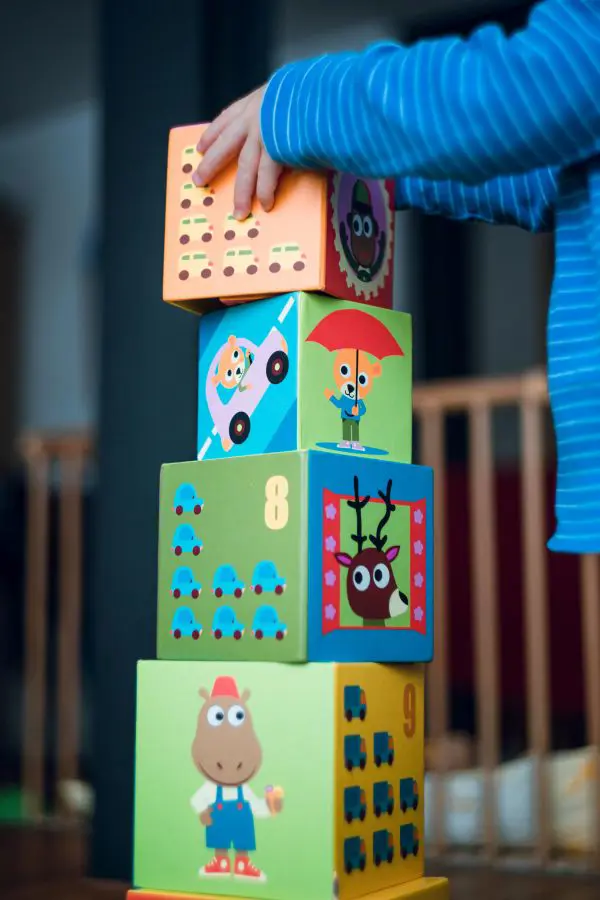
Play is a fundamental part of early childhood and contributes to higher levels of discovery in many domains- social, emotional, cognitive, and physical. That's why every parent needs to comprehend and enable the stages of play, as it helps them and educators to sustain children's growth effectively and positively.
In the 1929 sociologist Mildred Parten illustrated six stages of play that help explain how children interact with the world around them and peers as they grow. By focusing on all of those, this article is all set to explore all the stages, which makes it easier to socialize your kids.
1. Unoccupied Play (Birth- 3 Months)

In the earliest months of life, babies engage in what might not look like play to adult eyes, but these seemingly random movements are the beginning of their play journey. This stage is crucial for sensory exploration and motor skill development. Babies learn about their bodies and begin to gain control over their movements.
During this stage, babies are:
- Learning about their own bodies and how they move
- Developing muscle control and coordination
- Beginning to understand cause and effect
- Building neural connections through repetitive movements
Parents can support this stage by:
- Providing safe spaces for unrestricted movement
- Engaging in gentle physical play like bicycle legs
- Using soft toys and objects that encourage reaching and grasping
- Responding to their movement with positive reinforcement
2. Solitary Play (Birth- 2 Year)
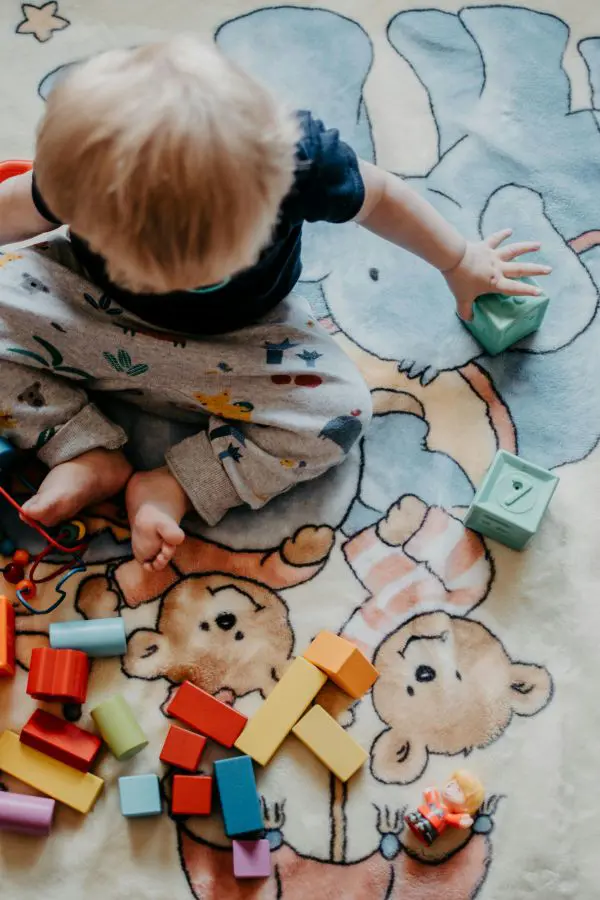
As babies grow into toddlers, they begin to play independently, showing little to no interest in playing with others since they enjoy and love their own company. This crucial stage helps children develop concentration and learn about their world through exploration and experimentation. Thus, don't stop them.
During solitary play, children:
- Explore toys and objects independently
- Develop focus and concentration
- Learn through trial and error
- Build early problem-solving skills
- Strengthen their imagination and creativity
This stage is characterized by:
- Complete absorption in their own activities
- Little awareness of other children playing nearby
- Strong preference for playing alone
- Experimentation with different toys and materials
Parents can encourage healthy solitary play by:
- Creating a safe, stimulating environment
- Providing age-appropriate toys and materials
- Allowing children to play independently without interference
- Offering gentle supervision without directing the play
3. Onlooker/ Spectator Play (2 Years)
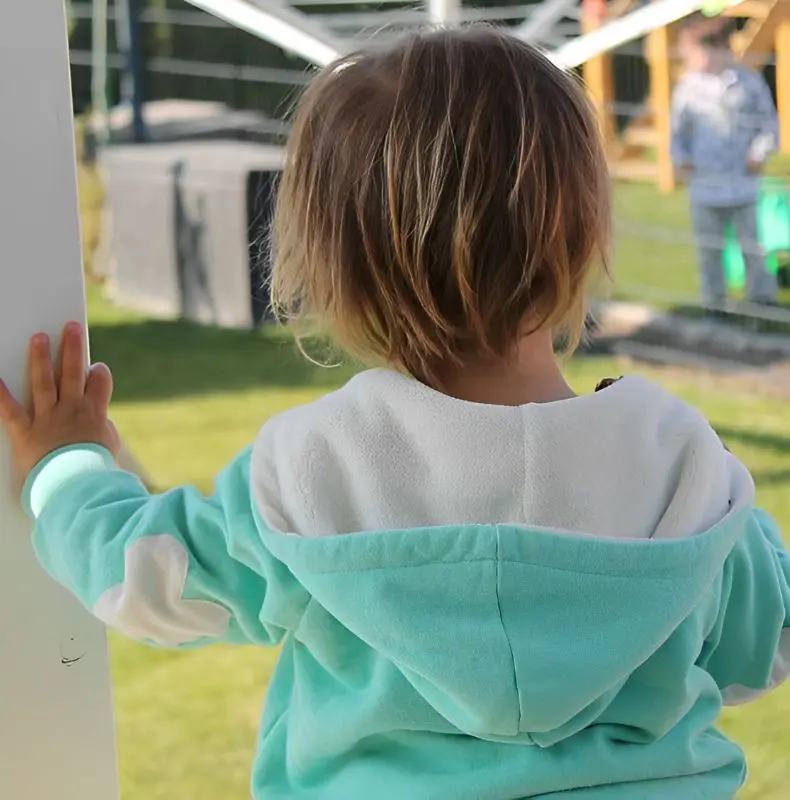
Around age two, the children begin to show interest in other children's play activities, though they may not yet join in. This observational stage is crucial for learning social cues and play behaviors.
During this stage, children:
- Watch other children playing with great interest
- May ask questions about the play they observe
- Learn about social interactions through observations
- Begin to understand the rules and patterns of play
Key characteristics include:
- Standing or sitting near other children who are playing
- Asking questions about the play activities
- Showing emotional reactions to observed play
- Beginning to mimic observed behaviors during their own playtime
Parents can support this stage by:
- Creating opportunities to observe other children playing
- Answering questions about the observed play without being annoyed
- Encouraging gentle interactions with playing children
- Maintaining a safe emotional distance while children observe
4. Parallel Play (2+ Years)
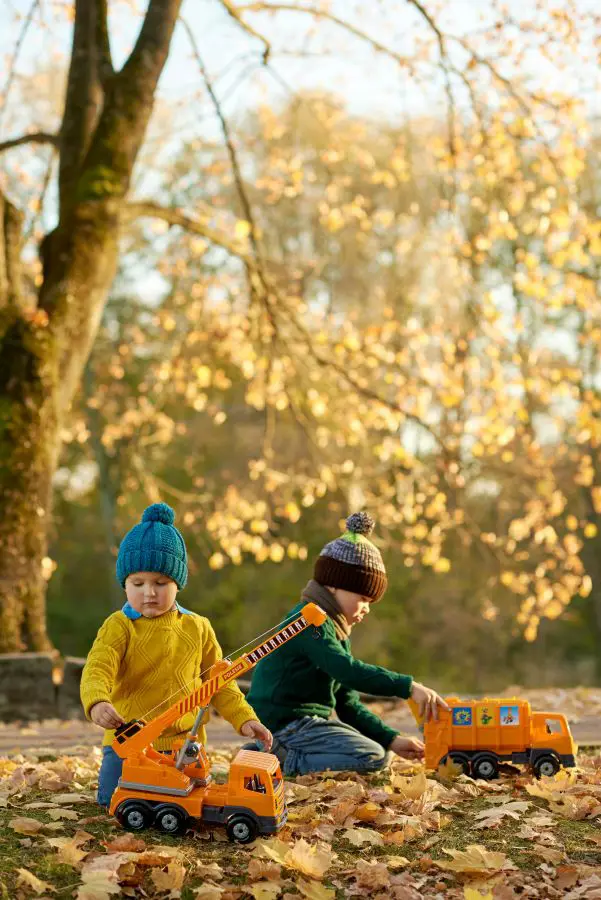
Parallel play marks an important transition where children play alongside others but not directly with them. This stage builds a bridge between solitary and more social forms of play.
During parallel play, children:
- Play independently while in close proximity to others
- May use similar toys or engage in similar activities
- Begin to show awareness of other's activities
- Learn basic social skills through side-by-side play
This stage is characterized by:
- Playing near others but not directly interacting
- Mimicking other's play behaviors
- Showing increased awareness of other's presence
- Beginning to develop social skills through proximity
Parents can facilitate parallel play by:
- Organizing playdates with age-appropriate peers
- Providing duplicate toys to reduce conflicts
- Creating spaces that encourage side-by-side play
- Offering gentle guidance when needed
5. Associative Play (3-4 Years)

As children enter preschool age, they begin to interact more directly with others during play, though activities may still be loosely organized. This stage marks the beginning of true social play.
During associative play, children:
- Share materials and toys with others
- Engage in similar activities with peers
- Begin to communicate about their play
- Show interest in other children's activities
Key features include:
- Increased verbal communication during play
- Sharing and borrowing of play materials
- Limited organizations or rules in play activities
- Growing awareness of others' feelings and needs
Parents can encourage associative play through:
- Organizing small group activities
- Teaching basic sharing and taking turns
- Encouraging verbal communication during play
- Supporting positive peer interactions
6. Cooperative Play (4+ Years)
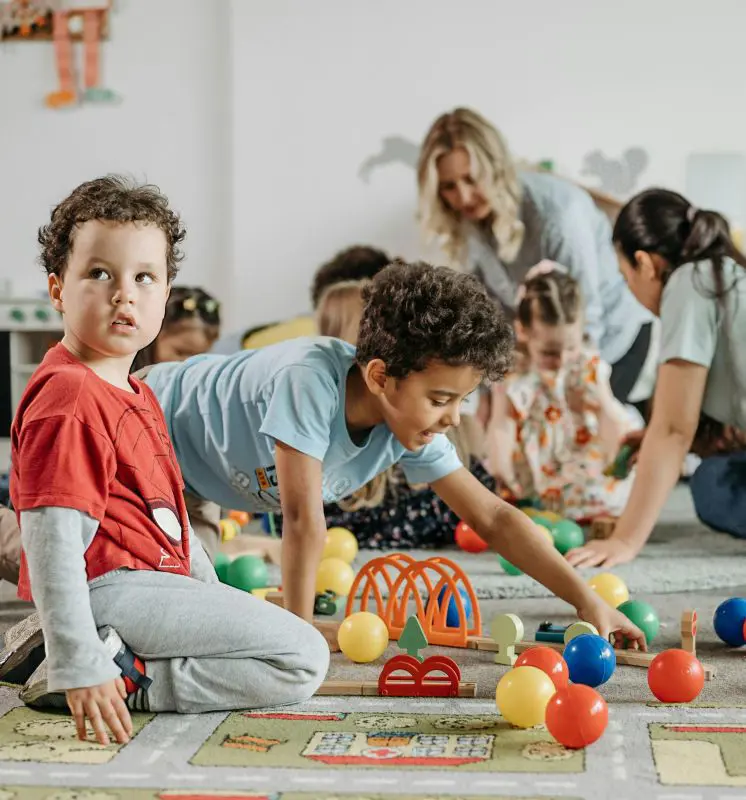
The final stage of play development involves organized, goal-directed play with other children. This complex form of play requires social skills, communication, and the ability to work together toward common goals.
During cooperative play, children:
- Work together toward shared goals
- Follow established rules and guidelines
- Take on different roles within play scenarios
- Engage in complex social interactions
This stage is characterized by:
- Organized group activities and games
- Role-playing and dramatic play
- Team sports and group projects
- Complex social negotiations and problem-solving
Parents can support cooperative play by:
- Encouraging participation in group activities
- Teaching conflict resolution skills
- Supporting creative group play scenarios
- Helping children understand and follow rules
The Importance Of Play In Child Development
Stages of play hold huge importance in child development; most parents have misconceptions about play and just take it as a leisure activity. Parents need to understand that, this small misconception may lead their child towards isolation and they may also feel unloved.
Through different stages of play, children learn to express themselves, develop problem-solving skills, and build different positive relationships. Each stage of play contributes uniquely to these developmental milestones:
- Cognitive Development: Children enhance their thinking and understanding of the world around them. And start to accept and enjoy everything.
- Social Skills: Play fosters communication, cooperation, and conflict resolution.
- Emotional Growth: Engaging in play helps children manage emotions and develop empathy.
Likewise, your children will experiment with different characters through their social interactions, plus, they learn about themselves more when they are playing alone.
How Parents and Educators Can Support Play Development

If every parent understands, accepts, and appreciates each stage of play development, it allows them to provide proper support and guidance at each stage. Here are some general tips for parents and educators:
- Provide Age-Appropriate Toys: Make sure that toys and activities match the child's development stage.
- Create a Safe Environment: Offer a secure and stimulating space for exploration and play.
- Encourage Social Interaction: Arrange playdates or group activities to foster social skills.
- Be patient: Allow children to progress through the stages at their own pace. Never force them to play, or do any activities according to your preferences.
- Model Positive Behaviors: Demonstrate sharing, cooperation, and empathy during play.
Development Through Different Stages Of Play

The development through these stages is amazing and impressive. Every child experiences different types of development through play. Let's discuss some of the developments that occur after positively following the stages of play:
1. Intellectual Development
Play is formative, and in one way or another, it supports the memory, thinking, as well as reasoning skills of your child. During play, children between 2-3 years understand how to start using their imagination, can count a few numbers, and identify shapes and sizes.
2. Physical Development
While passing through the stages of play, children will learn how to move, balance, and lift objects. This assists them in acquiring the fundamental movement patterns that aid them to remain active in the future. Besides this, play will also help the children to remain fit as they grow older in their ages. It also supports their bones and muscles.
3. Language and Literacy Development
To your knowledge, a child's language development starts when s/he is in the womb, and this is why when the child is born they recognize your voice and turn their head towards the direction of the source of the sound you make. It is customary to just talk to your child even though there is no reciprocation involved in the conversation. In general, the more often they hear words the greater their their vocabulary is going to increase. You can simply encourage your child by doing the following things:
- Never miss the chance to talk with them by keeping a pleasing smile on your face.
- Labeling, for example, when the child is moving his/her legs say, "I see, you are kicking." To an older child, you may, for example, tell them "You like food."
- Try not to repeat the same words you said during the last conversation with your kid if you said "That is a good food" today you might say "That is a healthy food."
4. Social Development
From the stage of associative play your child starts to build connections with others, which slowly helps them to build and learn about social connections. Children learn to play and share their dolls due to this sweet behavior they become close to his/her play partners.
Challenges Arise During Stages Of Play
It is obvious while kids are going through those stages both parents and kids have to face some challenges that may come out of the blue. For your ease, we listed some of the common challenges:
- The challenge that parents have to face in an unoccupied play stage; while it may seem like random movements, this stage is crucial for sensory development. Parents might worry that their baby isn't engaging enough, but it's important to understand that this is a vital part of their growth.
- In the solitary stage, parents often worry about social skills development since children are not interacting with peers. However, solitary play allows children to explore and master new skills independently.
- Likewise, the onlooker stage can be frustrating for parents who may want their children to engage socially. However, watching others is an important way for children to learn social cues and behaviors before they feel ready to participate.
- In parallel play, kids may become more engrossed in their own activities, leading to less sharing or cooperation. This stage is essential for learning about being near others without direct interaction, but it can also lead to misunderstandings about sharing and cooperation.
- The challenge in the associative stage- while there is more interaction, conflicts can arise over sharing toys or taking turns, which can be challenging for both children and caregivers as they navigate these social dynamics.
- Similarly, the cooperative stage requires advanced social skills like negotiation and conflict resolution. Children may struggle with sharing control or agreeing on rules, leading to potential conflicts that need adult mediation.
- Besides those, sometimes misunderstandings between kids and parents also bring some challenges due to language problems, as it is difficult to catch the word of children in some cases.
Final Thought
It is very crucial to understand that play development is a natural progression that occurs as children grow and mature. Each stage builds upon the previous one, creating a rich tapestry of experiences that contribute to a child's overall development. While age ranges are mentioned for each stage, remember that every child develops at their own pace, and there is often overlap between stages.





